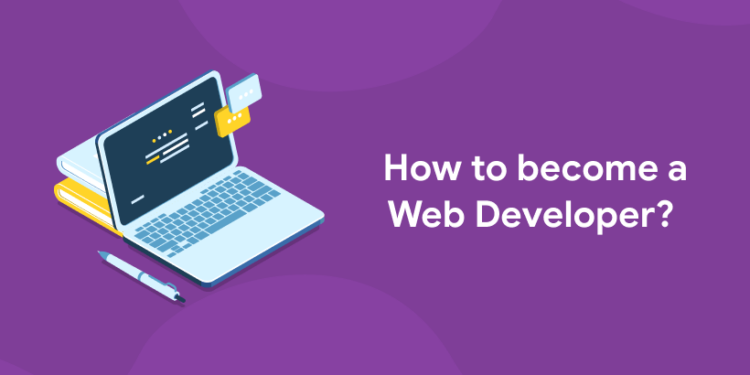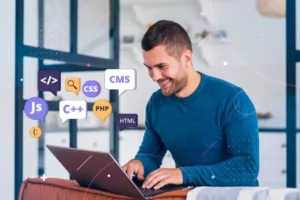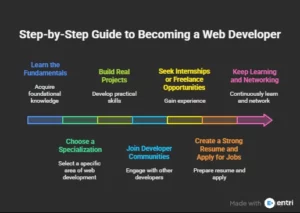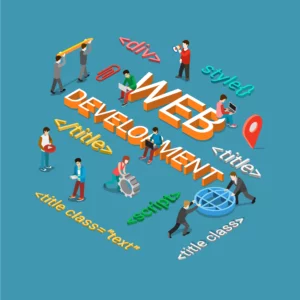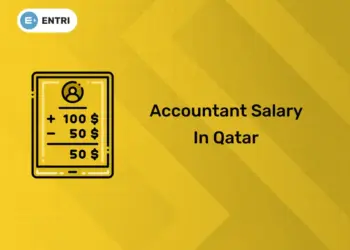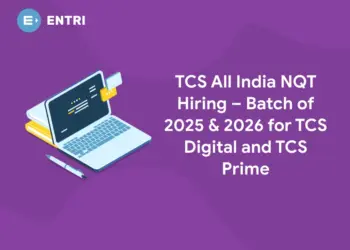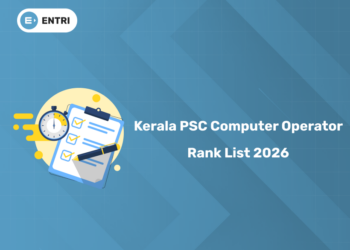Table of Contents
Key Takeaways:
- Web development is a highly versatile career with strong demand and rewarding salaries.
- Master core web technologies like HTML, CSS, JavaScript, and progress to popular frameworks and back-end languages.
- Real-world projects and a strong portfolio are crucial for job readiness and showcasing your skills.
- Soft skills and continuous learning are equally important as technical skills for long-term success.
- Entri’s Full Stack Developer Course provides comprehensive training, hands-on projects, mentorship, and certification to fast-track your career.
Introduction
In today’s digital age, web development stands out as one of the most dynamic and rewarding career paths. Every business, from startups to multinational corporations, depends heavily on websites and web applications to connect with their customers and streamline operations. This creates a constantly growing demand for skilled web developers who can build and maintain these digital platforms. Whether it’s creating an engaging user interface or managing robust server-side functions, web development offers a blend of creativity and technical challenge that attracts millions worldwide.
Becoming a web developer is not just about coding but about solving real-world problems and crafting seamless digital experiences. The journey to becoming proficient can be highly rewarding as it equips you with the skills to develop anything from simple personal blogs to complex e-commerce applications. This guide will walk you through all the essential steps, skills, and resources needed to start and grow a successful career in web development.
What is a Web Developer?
1: Which of the following is a JavaScript framework/library?
A web developer is a professional who designs, builds, and maintains websites or web applications. There are three main types of web developers based on their areas of expertise:
-
Front-end Developers: Focus on what users see and interact with, using languages like HTML, CSS, and JavaScript to create visually appealing interfaces.
-
Back-end Developers: Work on the server-side, handling databases, application logic, and server communication with languages such as Node.js, Python, or PHP.
-
Full-stack Developers: Skilled in both front-end and back-end development, capable of building entire web applications from scratch.
Each role contributes uniquely to the digital ecosystem, and knowing their differences helps you choose the path that suits your interests and strengths.
🚀 Start Coding Today! Enroll Now with Easy EMI Options. 💳✨
Get Hired as a Full-Stack Developer: Master the Skills Employers Are Looking For!
Start Learning With EMI Payment OptionsWhy Choose Web Development as a Career?
Web development is a career that combines creativity, problem-solving, and technology in a way few other professions do. Here are some compelling reasons to consider web development as your career path:
-
High Demand Across Industries: Every business needs a digital presence, from startups and nonprofits to large enterprises. This ensures strong, sustained demand for web development skills globally.
-
Lucrative Salary Opportunities: Web developers earn competitive salaries that grow with experience and specialization, offering financial stability and career advancement.
-
Flexibility in Work Environment: Web development offers options to work remotely, freelance, or in various company cultures—from small teams to big tech firms.
-
Continuous Learning and Innovation: The field evolves rapidly, offering constant opportunities to learn new technologies and innovate with creative solutions.
-
Diverse Career Paths: You can specialize in front-end, back-end, full-stack, UX/UI design, or transition into roles like software engineering, DevOps, or product management.
-
Creative and Technical Balance: Web development lets you harness both your artistic side (design, user experience) and analytical thinking (coding, debugging).
-
Global Opportunities: Skills in web development open up international job prospects with companies worldwide, allowing for cultural exchange and career growth.
-
Work-Life Balance: Many developers enjoy the ability to set flexible schedules or work as freelancers, supporting better balance between professional and personal life.
What Are the Essential Skills for Web Developers
To build a successful career in web development, mastering a mix of technical and soft skills is crucial:
-
Programming Fundamentals: Start with HTML, the backbone for webpage structure; CSS for styling and layout; and JavaScript for interactivity. These core languages are indispensable for front-end development.
-
Front-end Frameworks: Learn popular libraries and frameworks such as React, Angular, or Vue.js that help build scalable, modern user interfaces efficiently.
-
Back-end Technologies: Familiarize yourself with server-side languages and frameworks like Node.js with Express, Python with Django or Flask, and PHP with Laravel. Understanding server logic, API creation, and database interaction is critical.
-
Databases: Gain proficiency in both relational databases (MySQL, PostgreSQL) and NoSQL databases (MongoDB) for effective data storage and retrieval.
-
Version Control: Learn Git and GitHub to track code changes, collaborate with others, and maintain codebase integrity.
-
Testing and Debugging: Develop skills to test code for bugs and performance issues using testing frameworks and manual debugging practices.
-
Security Best Practices: Understand web security fundamentals like authentication, encryption, and protecting against common vulnerabilities.
-
Soft Skills: Cultivate problem-solving abilities, effective communication, teamwork, and adaptability to thrive in dynamic development teams.
-
Continuous Learning: Stay updated with emerging technologies like TypeScript, Progressive Web Apps (PWAs), GraphQL, and AI integrations that shape the future of web development.
Developing these skills makes you well-rounded and job-ready for various roles, from front-end to full-stack development.
Step-by-Step Guide to Becoming a Web Developer
1. Learn the Fundamentals:
Begin by mastering HTML, CSS, and JavaScript — the building blocks of any website. Use tutorials, online courses, and coding bootcamps to solidify your understanding of web page structure, styling, and interactivity.
2. Choose a Specialization:
Decide if you want to focus on front-end development (user interfaces, client-side logic), back-end development (server-side code, databases), or full-stack development (both). Each has distinct roles and technologies worth exploring.
3. Build Real Projects:
Apply your skills by creating websites and web applications. Start with simple projects like personal blogs or portfolios and gradually build complex applications like e-commerce sites or booking platforms. This hands-on work helps you learn practical problem-solving and coding techniques.
4. Join Developer Communities:
Participate in platforms such as GitHub, Stack Overflow, and developer forums to collaborate, share projects, seek feedback, and stay connected with industry trends and best practices.
5. Seek Internships or Freelance Opportunities:
Gain real-world experience and develop your professional network by interning at companies or taking freelance projects. This practical exposure enhances your resume and portfolio.
6. Create a Strong Resume and Apply for Jobs:
Highlight your technical skills, projects, certifications, and any relevant experience thoughtfully. Tailor your application to the job description to stand out to recruiters.
7. Keep Learning and Networking:
Web development is ever-changing, so invest time in learning new frameworks and tools. Attend workshops, webinars, and meetups to expand your knowledge and connections, which can lead to exciting opportunities.
🚀 Start Coding Today! Enroll Now with Easy EMI Options. 💳✨
Get Hired as a Full-Stack Developer: Master the Skills Employers Are Looking For!
Start Learning With EMI Payment OptionsHow to Build Your Web Developer Portfolio
A compelling portfolio is essential to showcase your skills to potential employers and clients. Here’s how to build one effectively:
-
Diverse Projects: Include a variety of projects such as personal websites, responsive designs, interactive web apps, or contributions to open-source projects. Demonstrate your ability to solve different types of challenges.
-
Project Details: For each project, provide a brief summary explaining its purpose, your specific role, the technologies used, and any noteworthy challenges you overcame.
-
Code Quality: Link to your project source code on platforms like GitHub to display clean, well-documented code.
-
Live Demonstrations: Whenever possible, provide live links to hosted applications or websites so recruiters can experience your work firsthand.
-
User Experience: Highlight how your projects improve user experience, accessibility, and responsiveness.
-
Continuous Updates: Regularly add new projects and refine existing ones to reflect your latest skills and knowledge.
-
Personal Branding: Design your portfolio website with care to reflect your personal style and professionalism, making navigation intuitive and visually appealing.
By developing a strong portfolio, you reinforce your application and demonstrate practical competence beyond resumes and certificates.
Entri’s Full Stack Developer Course: Elevate Your Career
Entri offers a comprehensive Full Stack Developer Course designed to equip learners with practical skills to build scalable web applications. This 7-month online program combines live expert sessions, recorded content, and hands-on projects to prepare you for real-world challenges.
Key features of the course include mastering front-end technologies like HTML, CSS, JavaScript, and React, as well as backend expertise in Node.js, Express, and database management with MongoDB. Students build portfolio-worthy projects, such as food ordering platforms and e-commerce websites, reinforcing learned skills.
The course also offers mentorship from industry leaders, career support including resume building and interview preparation, and a certification accredited by Illinois Tech, boosting employability. Flexible scheduling and scholarship options make it accessible for beginners and career switchers alike.
Learn alongside a community of peers, receive personalized guidance, and open doors to high-paying job opportunities at top tech firms through Entri’s dedicated placement assistance.
Conclusion
Starting a career in web development opens the door to a future full of innovation and endless possibilities. With the right guidance, continuous practice, and a strong portfolio, anyone can become a successful web developer. Begin today, embrace the learning journey, and consider Entri’s Full Stack Developer Course as your stepping stone towards a rewarding tech career.
Related Articles
🚀 Start Coding Today! Enroll Now with Easy EMI Options. 💳✨
Get Hired as a Full-Stack Developer: Master the Skills Employers Are Looking For!
Start Learning With EMI Payment OptionsFrequently Asked Questions
How long does it typically take to become a professional web developer?
With dedicated learning and practice, many beginners can become job-ready within 3 to 6 months through bootcamps or structured courses. However, web development is continuous learning as technology evolves.
Do I need a formal degree to get started in web development?
No, many developers are self-taught or complete coding bootcamps. Demonstrating skills through projects and a portfolio often matters more to employers than formal degrees.
What programming languages should I learn first?
Start with HTML, CSS, and JavaScript as foundational web technologies. From there, choose frameworks and backend languages based on your specialization.
Can I work remotely as a web developer?
Yes, web development is one of the most remote-friendly professions, offering both full-time remote roles and freelance opportunities.
How important is building a portfolio?
Extremely important. A portfolio is often your primary tool to prove your skills to employers, showcasing your ability through real projects and clean code.


